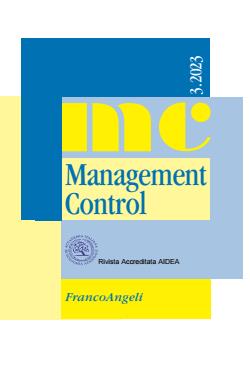
This paper aims to understand whether traditional management accounting tools (e.g. financial statement, reclassification and contribution margin analysis) contribute to foster dialogue and innovation in business networks composed of SMEs (small and medium-sized enterprises). Through the analysis of a case study, the paper focuses on a contractual network operating in the paper&print sector in Italy. Framing the analysis in the Simons’ construct (1990 and 1995), who distinguishes between diagnostic and interactive controls, the paper provides insights on the use of management control in inter-organizational settings, arguing that the traditional accounting tools can play an innovative role in network success. The contribution of the paper is on the ongoing debate on which functions, accounting information and MCSs (management control systems) may play in networks. In particular, findings shed light on the need to adapt the distinction between "diagnostic" and "interactive" in the network setting, given the horizontal and non-hierarchical relationships between the units involved.






